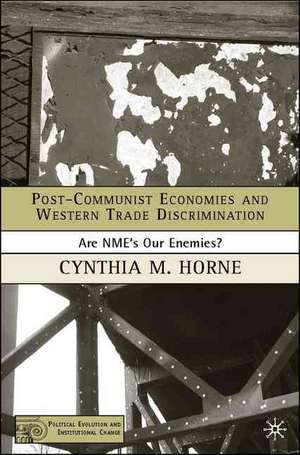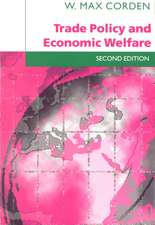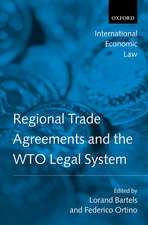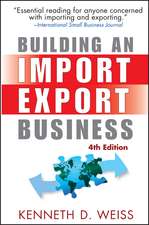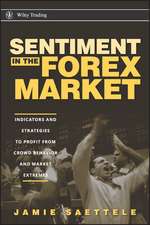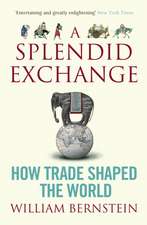Post-Communist Economies and Western Trade Discrimination: Are NMEs Our Enemies?: Political Evolution and Institutional Change
Autor C. Horneen Limba Engleză Hardback – 17 noi 2008
| Toate formatele și edițiile | Preț | Express |
|---|---|---|
| Paperback (1) | 385.08 lei 6-8 săpt. | |
| Palgrave Macmillan US – 8 noi 2015 | 385.08 lei 6-8 săpt. | |
| Hardback (1) | 387.75 lei 6-8 săpt. | |
| Palgrave Macmillan US – 17 noi 2008 | 387.75 lei 6-8 săpt. |
Preț: 387.75 lei
Nou
Puncte Express: 582
Preț estimativ în valută:
74.20€ • 77.31$ • 61.43£
74.20€ • 77.31$ • 61.43£
Carte tipărită la comandă
Livrare economică 03-17 aprilie
Preluare comenzi: 021 569.72.76
Specificații
ISBN-13: 9781403974518
ISBN-10: 1403974519
Pagini: 254
Ilustrații: X, 254 p.
Dimensiuni: 140 x 216 x 22 mm
Greutate: 0.41 kg
Ediția:2006
Editura: Palgrave Macmillan US
Colecția Palgrave Macmillan
Seria Political Evolution and Institutional Change
Locul publicării:New York, United States
ISBN-10: 1403974519
Pagini: 254
Ilustrații: X, 254 p.
Dimensiuni: 140 x 216 x 22 mm
Greutate: 0.41 kg
Ediția:2006
Editura: Palgrave Macmillan US
Colecția Palgrave Macmillan
Seria Political Evolution and Institutional Change
Locul publicării:New York, United States
Cuprins
Introduction: Transitions and Trade A Logic of Belief Stasis and Belief Change Crawfish, Sparklers, and Rebar: Testing Theories of Trade Protection The Nuts and Bolts of Anti-dumping Laws: Actors and Institutions in the United States and the European Union The Institutionalization of Beliefs Rule Change but Outcome Stasis Belief Stickiness and Belief Change Integrating Non-Market Economies into the International Trading System
Recenzii
"This book identifies a vital puzzle - why do American and European trade officials discriminate against formerly communist countries100 percent of the time? This outcome is unexpected, given repeated institutional rule changes since the end of the Cold War. Horne provides a novel and compelling argument that demonstrates how and why individual beliefs and ideas matter in explaining policy outcomes."
- Deborah K. Elms, Assistant Professor, Institute of Defence and Strategic Studies, Nanyang Technological University, Singapore
'Why do government agencies fail to implement their own regulations? Cynthia M. Horne wrestles this critical question to the ground by examining how lingering Cold War perceptions of NMEs as 'the enemy' have reinforced trade discrimination. Her five case studies of formal trade rule changes, combined with a quantitative refutation of traditional political economy explanations, clearlyillustrate the gap between formal rule changes and outcomeswhileexposing the explanatory importance of informal beliefs.'
- Alexandra Vacroux, Woodrow Wilson International Center for Scholars, Washington, D.C.
- Deborah K. Elms, Assistant Professor, Institute of Defence and Strategic Studies, Nanyang Technological University, Singapore
'Why do government agencies fail to implement their own regulations? Cynthia M. Horne wrestles this critical question to the ground by examining how lingering Cold War perceptions of NMEs as 'the enemy' have reinforced trade discrimination. Her five case studies of formal trade rule changes, combined with a quantitative refutation of traditional political economy explanations, clearlyillustrate the gap between formal rule changes and outcomeswhileexposing the explanatory importance of informal beliefs.'
- Alexandra Vacroux, Woodrow Wilson International Center for Scholars, Washington, D.C.
Notă biografică
CYNTHIA M. HORNE is an Assistant Professor at Seton Hall University's School of Diplomacy and International Relations, USA.
